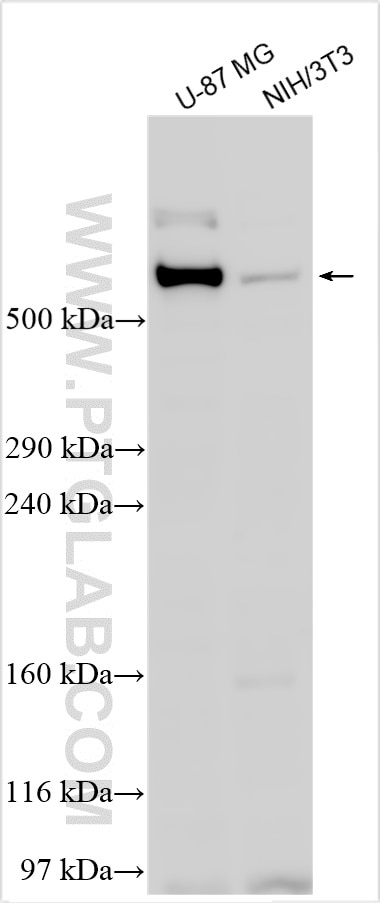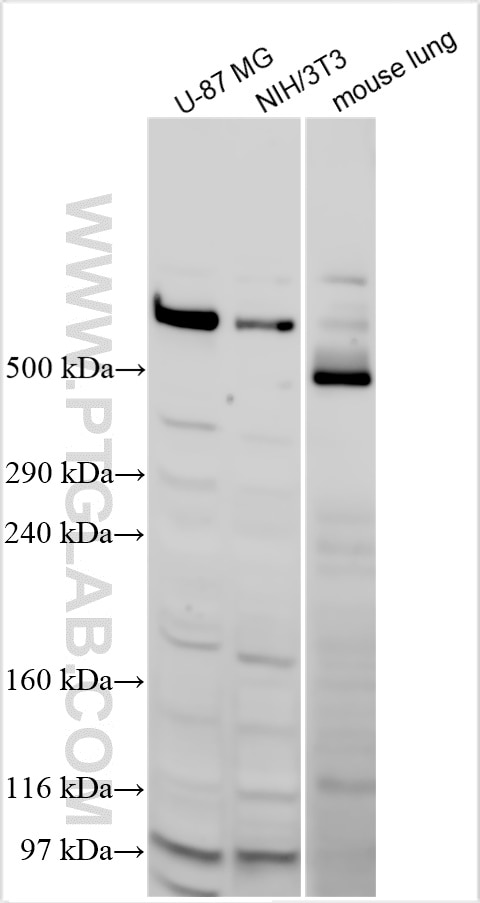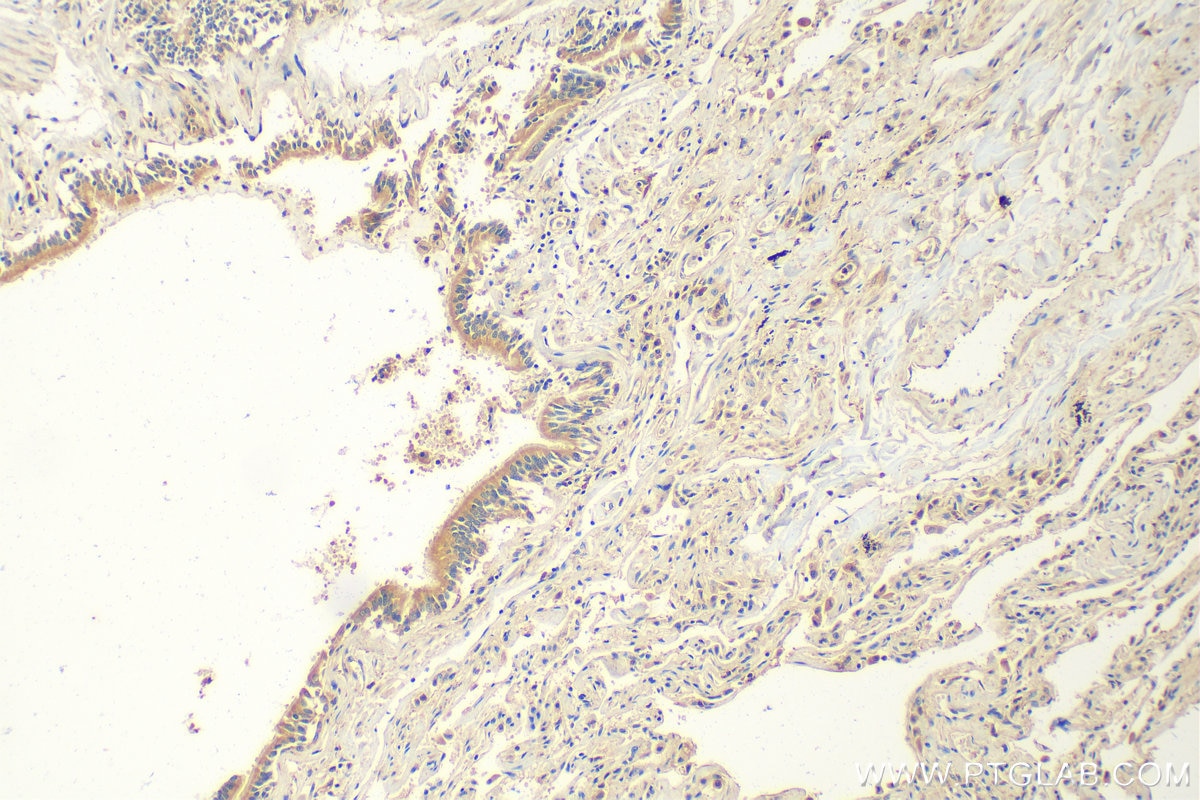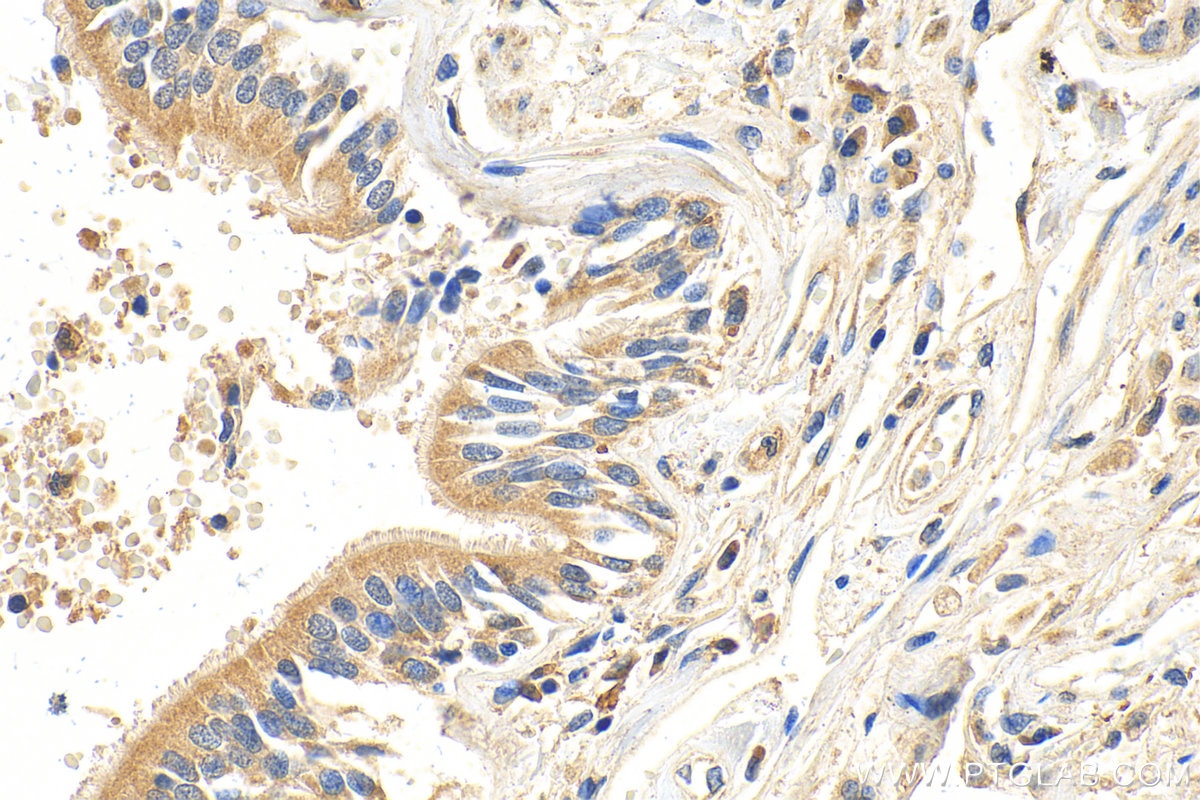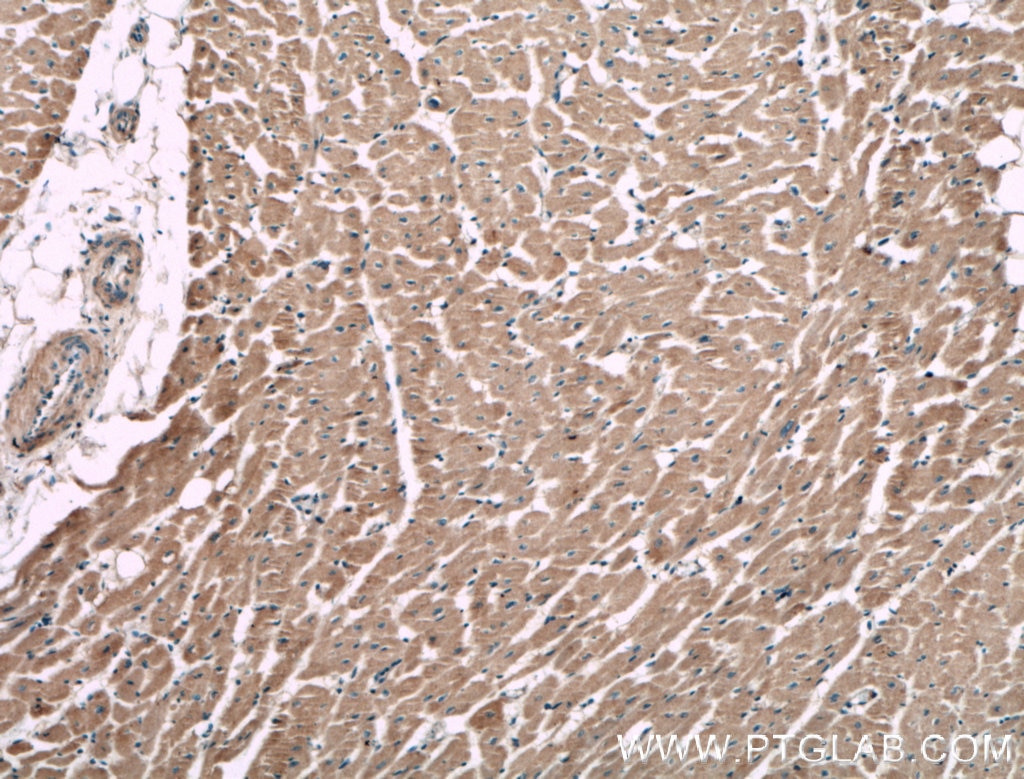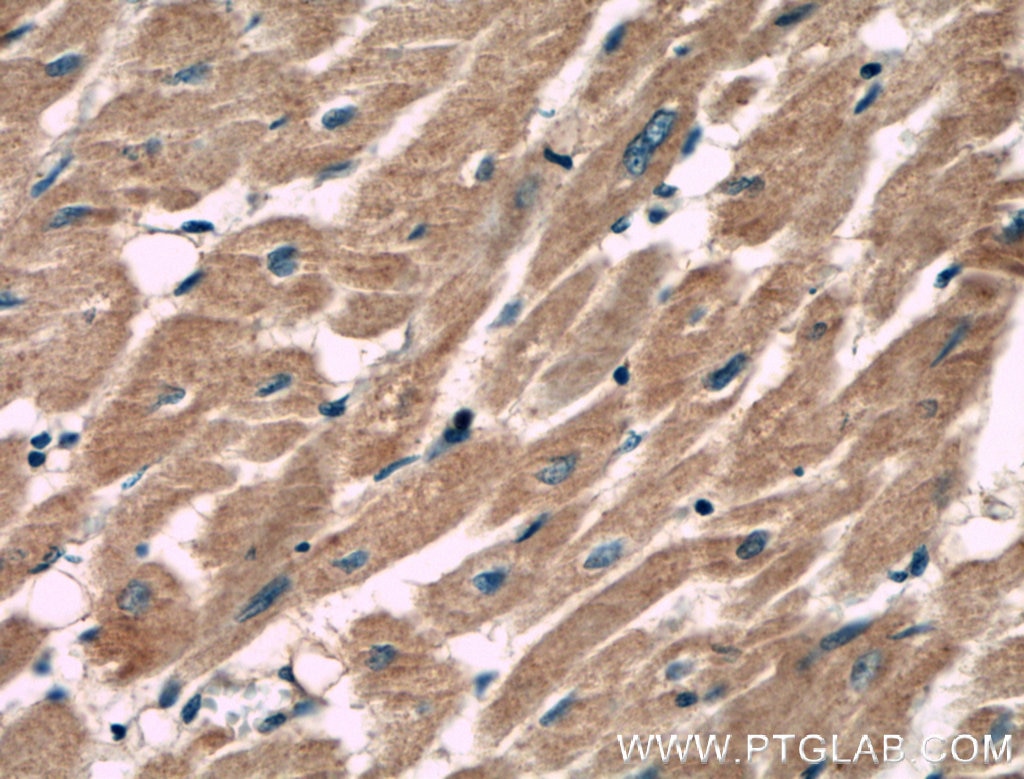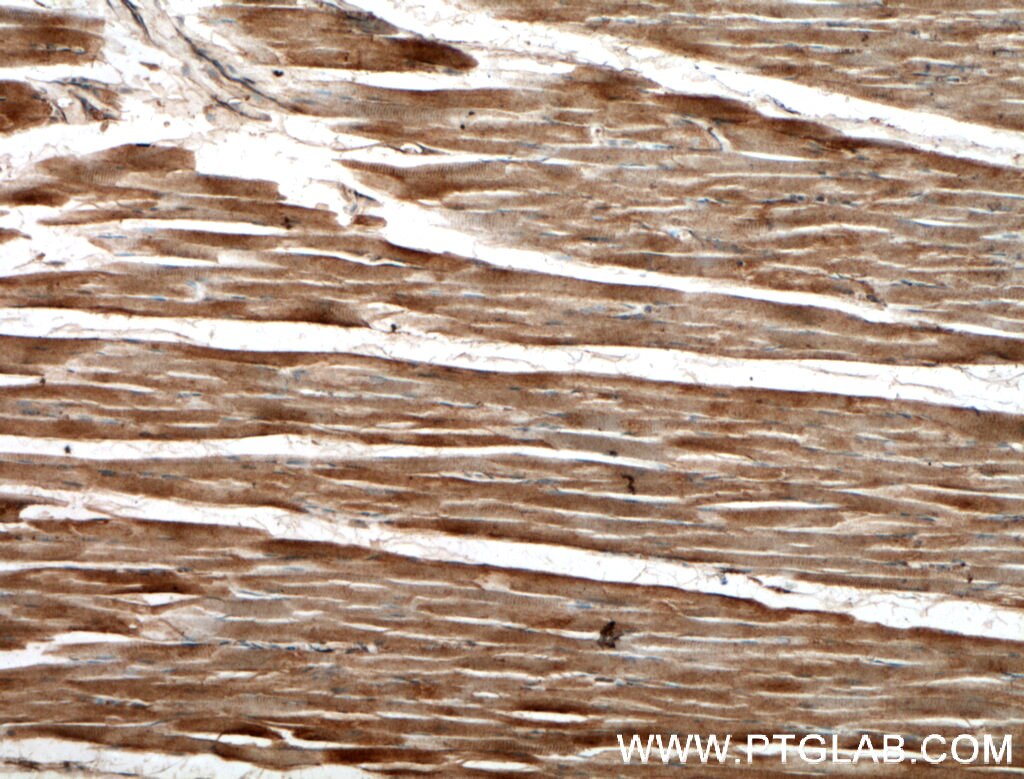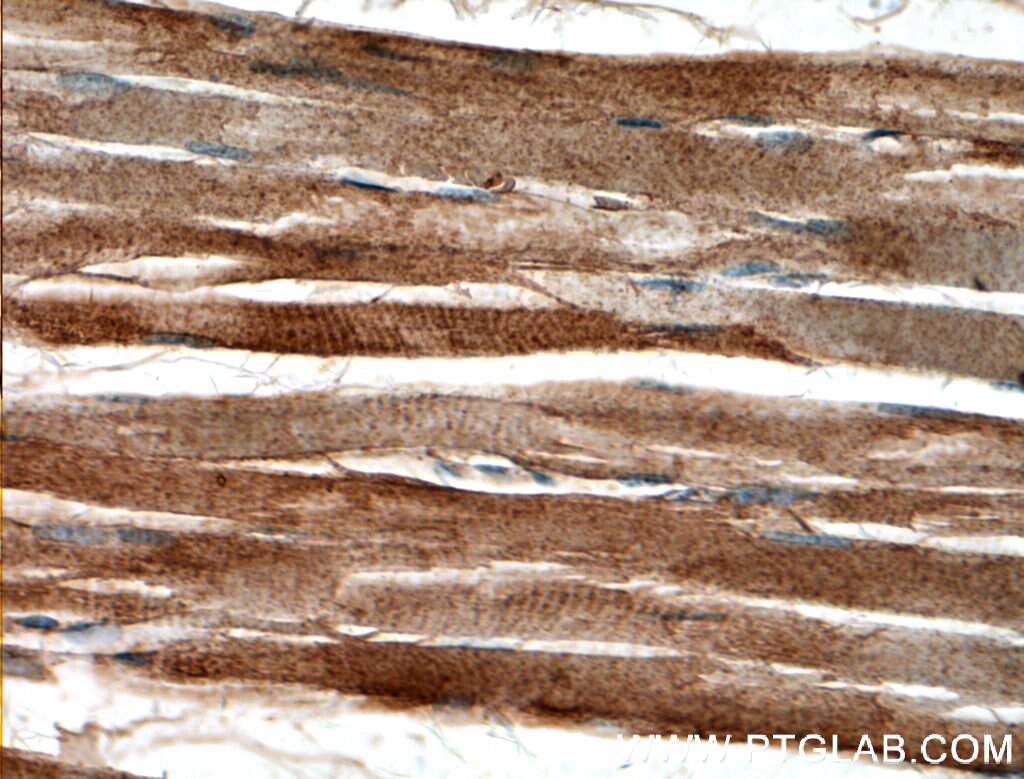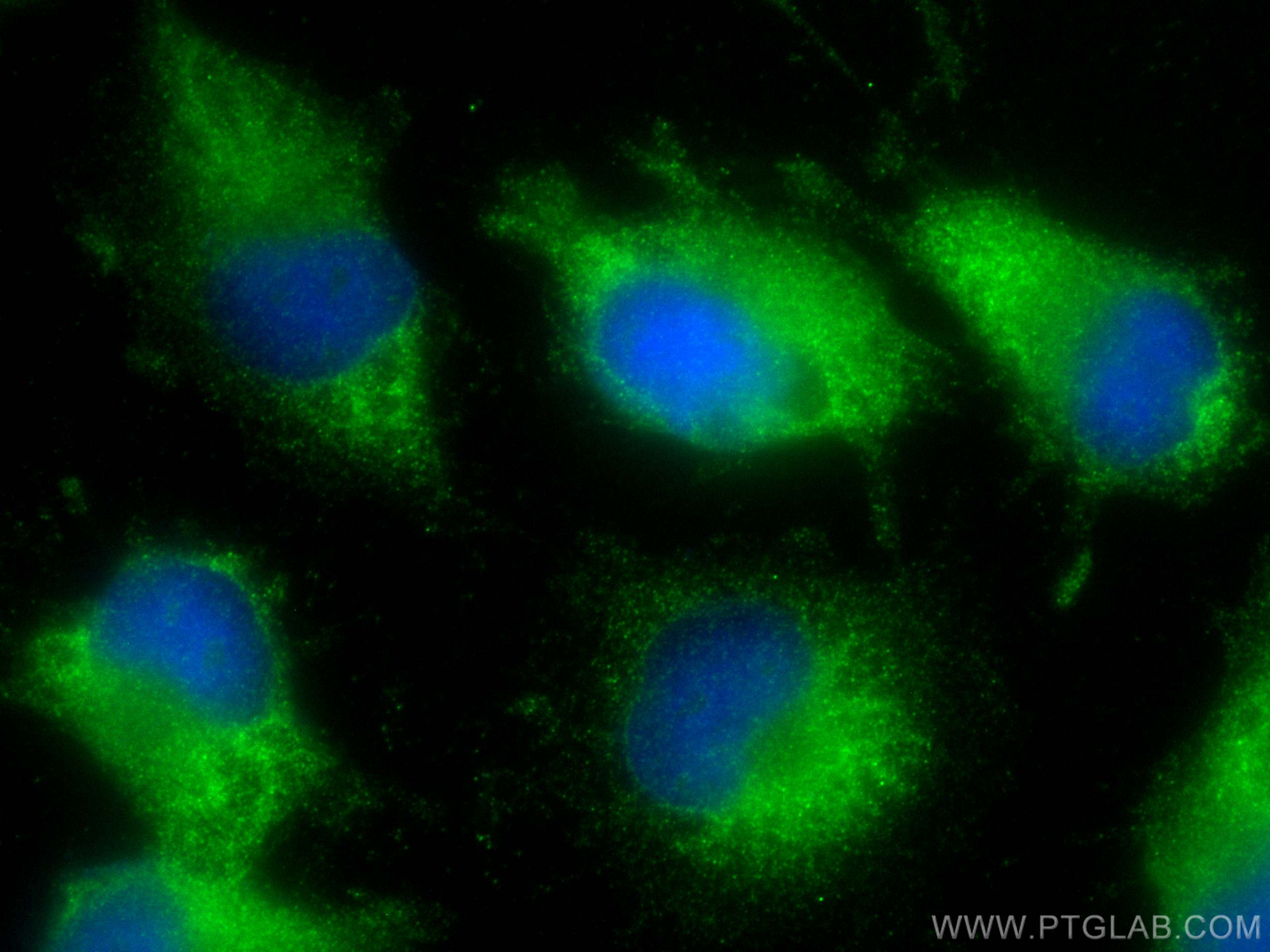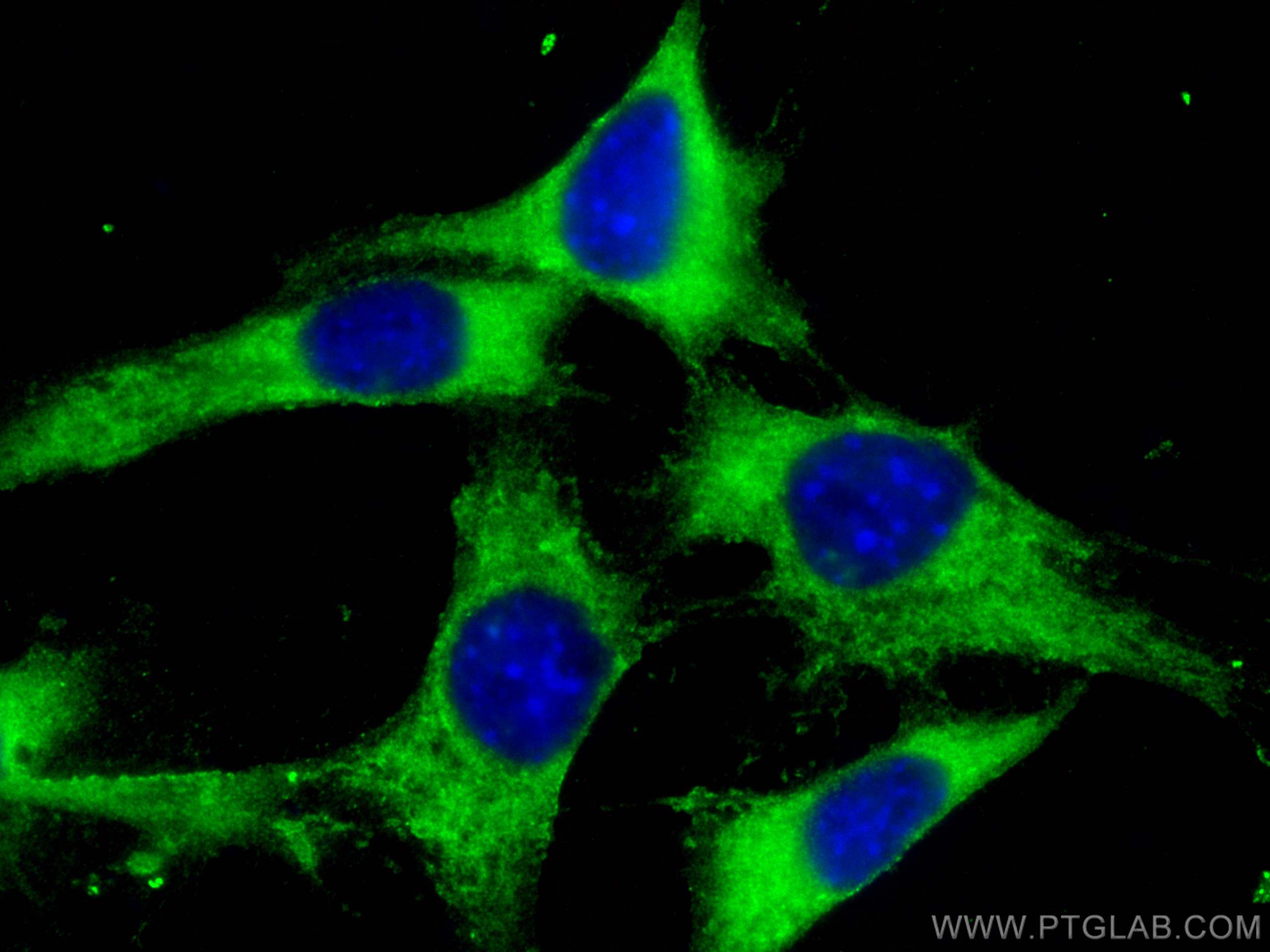Validation Data Gallery
Tested Applications
| Positive WB detected in | U-87 MG cells, NIH/3T3 cells, mouse lung tissue |
| Positive IHC detected in | human lung tissue, human skeletal muscle tissue, human heart tissue Note: suggested antigen retrieval with TE buffer pH 9.0; (*) Alternatively, antigen retrieval may be performed with citrate buffer pH 6.0 |
| Positive IF/ICC detected in | U-251 cells, NIH/3T3 cells |
Recommended dilution
| Application | Dilution |
|---|---|
| Western Blot (WB) | WB : 1:500-1:3000 |
| Immunohistochemistry (IHC) | IHC : 1:50-1:500 |
| Immunofluorescence (IF)/ICC | IF/ICC : 1:200-1:800 |
| It is recommended that this reagent should be titrated in each testing system to obtain optimal results. | |
| Sample-dependent, Check data in validation data gallery. | |
Published Applications
| KD/KO | See 1 publications below |
| WB | See 6 publications below |
| IHC | See 3 publications below |
Product Information
13058-1-AP targets MACF1 in WB, IHC, IF/ICC, ELISA applications and shows reactivity with human, mouse samples.
| Tested Reactivity | human, mouse |
| Cited Reactivity | human, mouse |
| Host / Isotype | Rabbit / IgG |
| Class | Polyclonal |
| Type | Antibody |
| Immunogen |
CatNo: Ag3730 Product name: Recombinant human MACF1 protein Source: e coli.-derived, PGEX-4T Tag: GST Domain: 3-305 aa of BC007330 Sequence: EDEVTRQVAQCKCAKRFQVEQIGENKYRFGDSQQLRLVRILRSTVMVRVGGGWMALDEFLVKNDPCRARGRTNIELREKFILPEGASQGMTPFRSRGRRSKPSSRAASPTRSSSSASQSNHSCTSMPSSPATPASGTKTSLQFSRCYDKPWLVNSKAGTPIRDSHSPDLQLPTPEVIPSSGSKLKRPTPTFHSSRTSLAGDTSNSSSPASTGAKTNRADPKKSASRPGSRAGSRAGSRASSRRGSDASDFDLLETQSACSDTSESSAAGGQGNSRRGLNKPSKIPTMSKKTTTASPRTPGPKR 相同性解析による交差性が予測される生物種 |
| Full Name | microtubule-actin crosslinking factor 1 |
| Calculated molecular weight | 5430 aa, 620 kDa |
| Observed molecular weight | 600 kDa |
| GenBank accession number | BC007330 |
| Gene Symbol | MACF1 |
| Gene ID (NCBI) | 23499 |
| RRID | AB_2877907 |
| Conjugate | Unconjugated |
| Form | |
| Form | Liquid |
| Purification Method | Antigen affinity purification |
| UNIPROT ID | Q9UPN3 |
| Storage Buffer | PBS with 0.02% sodium azide and 50% glycerol{{ptg:BufferTemp}}7.3 |
| Storage Conditions | Store at -20°C. Stable for one year after shipment. Aliquoting is unnecessary for -20oC storage. |
Background Information
MACF1, also called ACF7 (actin crosslinking family 7), is a member of the spectraplakin family and is a ubiquitously expressed 614 kDa protein. This protein facilitates actin-microtubule interactions at the cell periphery and couples the microtubule network to cellular junctions. It displays a conserved role in membrane protrusion formation during evolution. The two major MACF1 isoforms characterized to date, MACF1a and MACF1b, result from alternative splicing. Both proteins contain N-terminal actin-binding domains (ABD), followed by plakin domains, extended spectrin repeat domains, EF-hand motifs, and C-terminal microtubule-binding domains (MTBDs). MACF1 is expressed in numerous tissue, including the skin, brain, skeletal muscle, and heart.
Protocols
| Product Specific Protocols | |
|---|---|
| IF protocol for MACF1 antibody 13058-1-AP | Download protocol |
| IHC protocol for MACF1 antibody 13058-1-AP | Download protocol |
| WB protocol for MACF1 antibody 13058-1-AP | Download protocol |
| Standard Protocols | |
|---|---|
| Click here to view our Standard Protocols |
Publications
| Species | Application | Title |
|---|---|---|
Gastroenterology Proteomic characterization identifies clinically relevant subgroups of gastrointestinal stromal tumors | ||
Nat Commun The genomic landscape of cholangiocarcinoma reveals the disruption of post-transcriptional modifiers. | ||
Cell Death Differ MACF1 promotes osteoblast differentiation by sequestering repressors in cytoplasm.
| ||
PLoS Genet BBSome function is required for both the morphogenesis and maintenance of the photoreceptor outer segment. | ||
Oncotarget LRP6 promotes invasion and metastasis of colorectal cancer through cytoskeleton dynamics. | ||
Biomed Pharmacother Proteomics-based identification of tumor relevant proteins in lung adenocarcinoma. |

